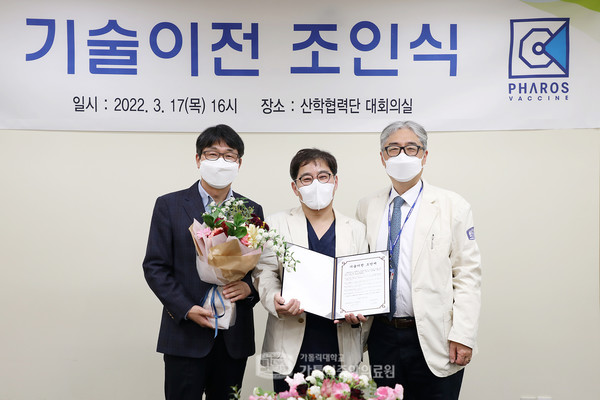Catholic University Korea Industry-Academic Cooperation Foundation has licensed out an immune tolerance dendritic cell to treat myocardial infarction and its manufacturing method, developed by Professor Jang Ki-yuk at Seoul St. Mary's Hospital, to Pharos Vaccine.

Dendritic cells are a type of specialized antigen-presenting cells that perform an antigen-presenting function in T cells and play an important role in T-cell activation. Immune tolerant dendritic cells regulate the inflammatory response by inducing tolerance to autoantigens and inhibiting the proliferation of T cells.
Although various research results have been published on treating cancer or immune-related diseases using dendritic cells, Professor Jang's research team is the first to apply it to the treatment of myocardial infarction, according to the foundation.
The research team obtained immune-tolerance dendritic cells by culturing dendritic cells with antigens extracted from a myocardial infarction mouse model. Afterward, the team compared the normal control group, the tDC-administered group, and the tDC-untreated group within 24 hours after surgery.
Professor Jang's team confirmed that the tDC administration group had more anti-inflammatory cytokines secretion. Based on the research results, they developed AMI-DC, an immune cell therapy to prevent and treat heart failure after acute myocardial infarction, the university said on Friday.
The team expects AMI-DC to be an effective drug in treating myocardial infarction. It can reduce the inflammatory response after myocardial infarction and the incidence of heart failure by inhibiting reconstruction and preventing excessive thinning of the heart wall.
"AMI-DC has high stability as a therapeutic agent. It extracts the blood of patients with myocardial infarction and obtains immune tolerance dendritic cells, and administers them to the patient," Professor Jang said. "It may suggest a new paradigm for preventing and treating heart failure after acute myocardial infarction."
Last June, AMI-DC received approval for a clinical trial plan from the Ministry of Food and Drug Safety and is conducting a researcher-led clinical trial.
Pharos Vaccine is preparing to apply for phase 1 and 2 clinical trials in the U.S. in the second half of 2022 after technology transfer.

